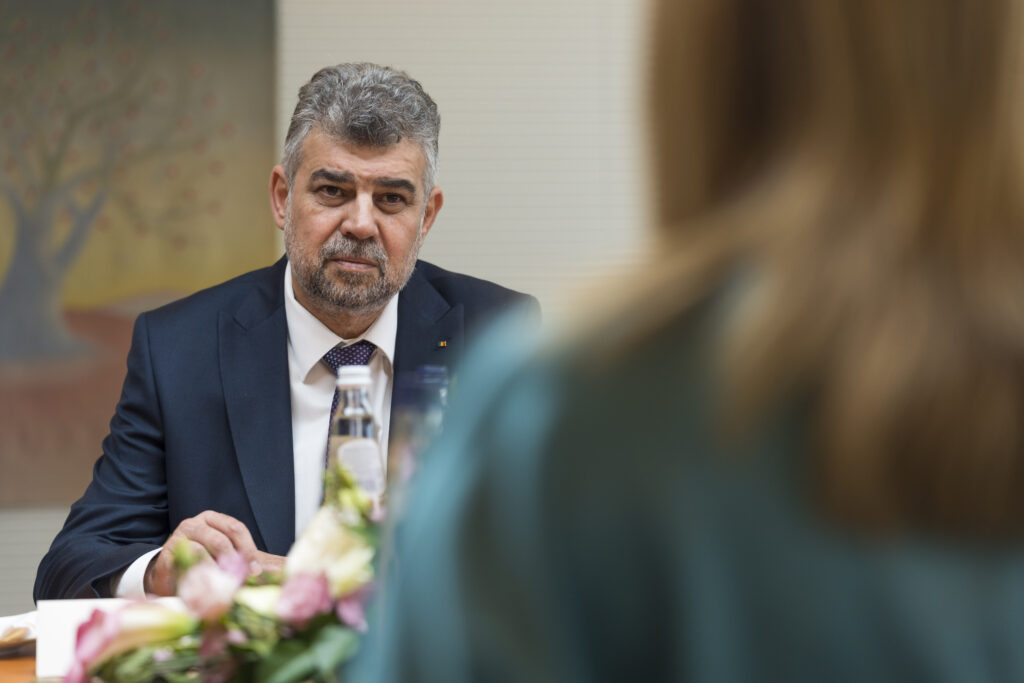From the correspondent in Strasbourg – Instead of dissipating, the fuss concerning the arrest warrant issued against Israeli Prime Minister Benjamin Netanyahu continues to mount. After Poland’s president had asked his government not to arrest the leader of the Jewish state if he visited Auschwitz to commemorate the victims of the Holocaust, it was the turn of the Romanian prime minister over the weekend, who directly invited his Middle Eastern counterpart to Bucharest. Both EU states, however, would technically be obliged to arrest Netanyahu if he set foot on their territory.
Under the Romanian sky, a stir was caused by the invitation extended by the social-democratic Prime Minister Marcel Ciolacu to his Israeli counterpart, to whom he proposed visiting Bucharest to meet him personally.
The outgoing prime minister (who is looking for the solution to form a new government after last month’s elections) has been the first foreign leader to visit the Jewish state after the October 7, 2023 attacks, in response to which Tel Aviv launched a violent military campaign in the Gaza Strip that has just been stopped by a ceasefire, about whose stability, however, doubts remain.
Romania and Israel share a relation of strategic importance and solidarity is part of our bonds. We will continue our joint efforts to promote peace and security and implement the different economic & security projects I agreed with PM @netanyahu. We will also work to prepare the…
– Marcel Ciolacu (@CiolacuMarcel) January 19, 2025
The controversy, which erupted yesterday (Jan. 19) but is not likely to die anytime soon, revolves around the arrest warrant for war crimes and crimes against humanity—in connection precisely with Israeli operations in Gaza, which have claimed over 46 thousand casualties, most of them civilians (and an estimated 18 thousand minors)—issued last November against Netanyahu and his former Defense Minister Yoav Gallant by the International Criminal Court (ICC), the Hague-based UN tribunal established by the 1998 Rome Statute and which, at least theoretically, is supposed to enforce international law.
In reality, the enforcement of the Court’s rulings is in the hands of the countries that recognize its authority: among the 125 parties to the Statute are all 27 members of the EU, but missing among others are the United States, Russia, China and, indeed, Israel. By formally recognising the jurisdiction of the ICC, the Twenty-Seven technically incur an obligation to implement arrest warrants issued by it, such as those against Russian President Vladimir Putin or Netanyahu and Gallant. An obligation clearly recalled to European chancelleries by the then High Representative for Foreign Policy, Josep Borrell, at the last ministerial meeting in Foreign Affairs format of the G7 under Italian chairmanship.
And yet, as the Romanian case shows, politics once again prevails over law. Bucharest has been a solid ally of Tel Aviv since the Cold War (when, despite being part of the Soviet bloc, it never broke diplomatic relations with the Jewish state), and the Romanian embassy in Israel was moved to Jerusalem in 2018.

In addition, coincidentally, two of the three hostages freed yesterday by Hamas as part of the agreement with Israel (Romi Gonen and Doron Steinbrecher) are of Romanian origin. On the entry into force of the ceasefire, EU Parliament President Roberta Metsola hailed at the opening of the plenary session in Strasbourg “the progress we all hoped for and so many desperately needed,” hoping “that the work toward a better tomorrow will continue” and “become the springboard for lasting stability, reconstruction, and increased aid that offers a real prospect for peace in the region.”
After all, the one in Bucharest is not a bolt from the blue. Only a few weeks ago, Polish President Andrzej Duda asked the government led by political rival Donald Tusk (the latter a prominent member of the centre-right European People’s Party, while the former is close to the ultranationalist right-wing PiS) to guarantee that the Israeli leader would not be arrested if he decided to travel to the country for the 80th anniversary celebration of the liberation of the Auschwitz concentration camp, scheduled for Jan. 27.
At the moment, however, it appears that Netanyahu does not intend to attend the ceremony precisely for fear that Polish authorities may take him into custody in compliance with the ICC warrant.
English version by the Translation Service of Withub







